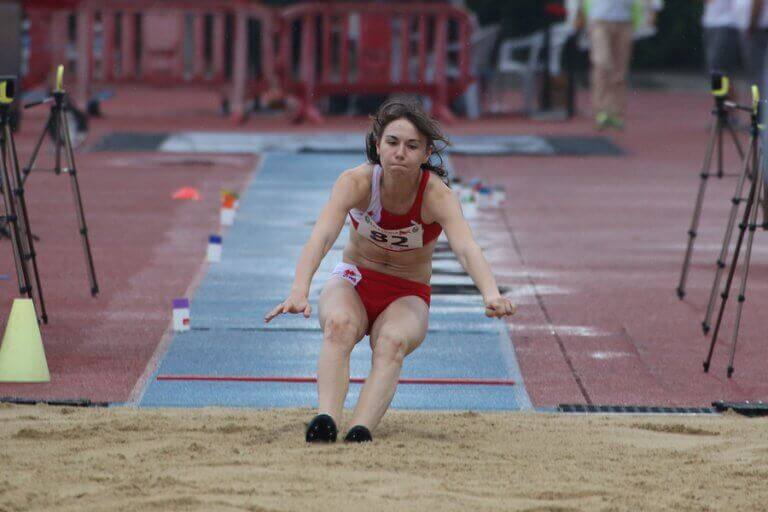The Spanish Athletics Federation: Everything You Need to Know

The Royal Spanish Athletics Federation (RFEA) is the highest organization for the regulation and promotion of all forms of athletics in Spain. Currently, it exclusively assumes the representation of the country before the European Athletics Association (AEA) and the International Association of Athletics Federations (IAAF).
Founded in 1918 and based in Valladolid, it represents the third Spanish federation with the highest number of Olympic victories. Since the first participation of Spanish athletes in the Antwerp 1920 Olympic Games, they’ve won 14 medals.
Despite all its achievements and historical figures, the RFEA has found itself in the middle of an international scandal. In mid-2019, coach Miguel Ángel Millán was accused of sexual abuse and the federation was considered a subsidiary civilian liable.
Functions of the Spanish Athletics Federation
Its main function is to ensure that the current regulations are transparent and effective to meet the specific needs of each discipline. In addition to ensuring that sport, technical and ethical standards are met, it also promotes the necessary changes to keep it updated. Especially if we take into account the accelerated advancement of technology in current times.
Furthermore, the RFEA is primarily responsible for the management and organization of competitions and official athletics events on a national level. An example of this is the Spanish Championships. It’s also in charge of selecting the athletes who’ll represent the national team in international events; an example of these events is the Olympic Games.
The RFEA also organizes multiple initiatives to promote the practice of athletics throughout the national territory. They do this in partnership with regional federations. Currently, the RFEA comprises 19 autonomous athletic federations. They all have their own president that represents them in general assemblies.

To fulfill all of its functions, this private sports entity has the power by designation to exercise various public administrative functions.
How and why to federate to an athletics federation?
According to the latest report of the Supreme Sports Council (CSD), the number of federations in Spain has been growing year after year. During 2018 alone, federal licenses have increased by almost 3 percent compared to 2017. In the case of athletics, federal licenses have increased by more than 30 percent in the last four years.
What does it mean to be federated in a sport?
When we talk about being federated in a sport, we’re referring to belonging to an autonomous sports federation. When deciding to federate, an athlete obtains a federative license; this is a document that certifies that they’re part of the autonomous federation. Consequently, the corresponding national federation must also recognize this document.
On the other hand, when an athlete practices one or more modalities without belonging to a federation, these organizations don’t endorse their efforts and achievements. Therefore, they don’t count when registering for any federative activity or official competition.
Benefits of being federated to the Spanish Athletics Federation
Belonging to an athletics federation implies an economic investment in exchange for certain advantages. Therefore, it’s important that each athlete evaluates their scope and needs well before applying for a federal license. These are some of the main benefits:
- Have the support of an official entity and specialized assistance in the event of accidents or emergencies.
- Request specialized advice regarding incentives to practice sports in one or more modalities.

- Participate in calls for prizes and special subsidies for high-performance athletes, as well as official acts, competitions and federative events in general.
- Be eligible to officially represent the autonomous community in national competitions, as a team or individually.
- Be able to form part of the national athletics team in international events.
- Access sports centers throughout Spain, becoming part of the FEDME National Program. You can also get training on topics related to health and safety, for example.
- Enjoy exclusive discounts on sports events and activities, accommodations, campsites, sports shops, bookstores, etc.
- Collaborate with projects and initiatives for the teaching and promotion of sport on a regional and national level.
To learn more about the requirements to federate to athletics, we recommend visiting the website of the regional federation that corresponds to your address. And if you want more information about the functions and regulations of the Spanish Athletics Federation, be sure to browse its official RFEA website.
The Royal Spanish Athletics Federation (RFEA) is the highest organization for the regulation and promotion of all forms of athletics in Spain. Currently, it exclusively assumes the representation of the country before the European Athletics Association (AEA) and the International Association of Athletics Federations (IAAF).
Founded in 1918 and based in Valladolid, it represents the third Spanish federation with the highest number of Olympic victories. Since the first participation of Spanish athletes in the Antwerp 1920 Olympic Games, they’ve won 14 medals.
Despite all its achievements and historical figures, the RFEA has found itself in the middle of an international scandal. In mid-2019, coach Miguel Ángel Millán was accused of sexual abuse and the federation was considered a subsidiary civilian liable.
Functions of the Spanish Athletics Federation
Its main function is to ensure that the current regulations are transparent and effective to meet the specific needs of each discipline. In addition to ensuring that sport, technical and ethical standards are met, it also promotes the necessary changes to keep it updated. Especially if we take into account the accelerated advancement of technology in current times.
Furthermore, the RFEA is primarily responsible for the management and organization of competitions and official athletics events on a national level. An example of this is the Spanish Championships. It’s also in charge of selecting the athletes who’ll represent the national team in international events; an example of these events is the Olympic Games.
The RFEA also organizes multiple initiatives to promote the practice of athletics throughout the national territory. They do this in partnership with regional federations. Currently, the RFEA comprises 19 autonomous athletic federations. They all have their own president that represents them in general assemblies.

To fulfill all of its functions, this private sports entity has the power by designation to exercise various public administrative functions.
How and why to federate to an athletics federation?
According to the latest report of the Supreme Sports Council (CSD), the number of federations in Spain has been growing year after year. During 2018 alone, federal licenses have increased by almost 3 percent compared to 2017. In the case of athletics, federal licenses have increased by more than 30 percent in the last four years.
What does it mean to be federated in a sport?
When we talk about being federated in a sport, we’re referring to belonging to an autonomous sports federation. When deciding to federate, an athlete obtains a federative license; this is a document that certifies that they’re part of the autonomous federation. Consequently, the corresponding national federation must also recognize this document.
On the other hand, when an athlete practices one or more modalities without belonging to a federation, these organizations don’t endorse their efforts and achievements. Therefore, they don’t count when registering for any federative activity or official competition.
Benefits of being federated to the Spanish Athletics Federation
Belonging to an athletics federation implies an economic investment in exchange for certain advantages. Therefore, it’s important that each athlete evaluates their scope and needs well before applying for a federal license. These are some of the main benefits:
- Have the support of an official entity and specialized assistance in the event of accidents or emergencies.
- Request specialized advice regarding incentives to practice sports in one or more modalities.

- Participate in calls for prizes and special subsidies for high-performance athletes, as well as official acts, competitions and federative events in general.
- Be eligible to officially represent the autonomous community in national competitions, as a team or individually.
- Be able to form part of the national athletics team in international events.
- Access sports centers throughout Spain, becoming part of the FEDME National Program. You can also get training on topics related to health and safety, for example.
- Enjoy exclusive discounts on sports events and activities, accommodations, campsites, sports shops, bookstores, etc.
- Collaborate with projects and initiatives for the teaching and promotion of sport on a regional and national level.
To learn more about the requirements to federate to athletics, we recommend visiting the website of the regional federation that corresponds to your address. And if you want more information about the functions and regulations of the Spanish Athletics Federation, be sure to browse its official RFEA website.
All cited sources were thoroughly reviewed by our team to ensure their quality, reliability, currency, and validity. The bibliography of this article was considered reliable and of academic or scientific accuracy.
- Página oficial RFEA. Extraído de: https://www.rfea.es/
- Fedme, página oficial. Extraído de: http://www.fedme.es/index.php?mmod=staticContent&IDf=163
- Informe sobre licencias, Consejo Superior de Deportes. Extraído de: https://www.csd.gob.es/es/federaciones-y-asociaciones/federaciones-deportivas-espanolas/licencias
- RFEA: Federaciones autonómicas atletismo. Extraído de: https://www.rfea.es/web/federacion/mapaespana.asp
This text is provided for informational purposes only and does not replace consultation with a professional. If in doubt, consult your specialist.








